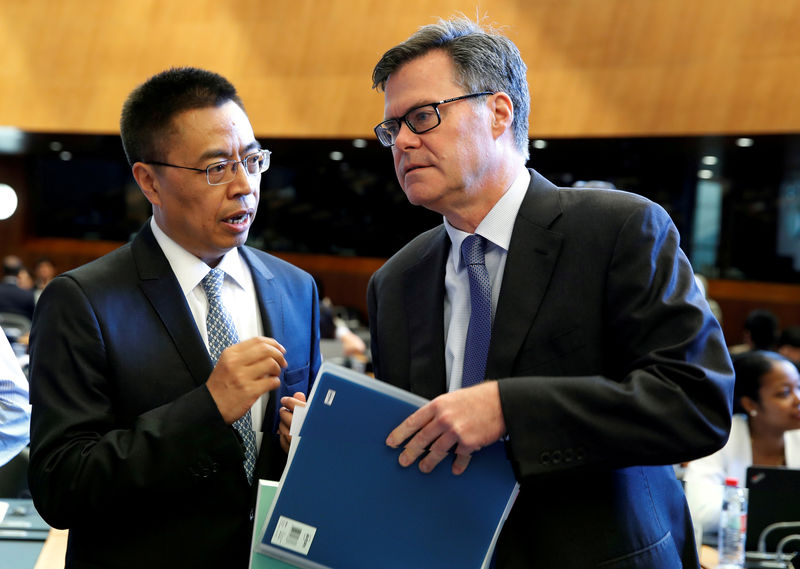By Stephanie Nebehay
GENEVA (Reuters) - The United States and China clashed anew at the World Trade Organisation on Wednesday, accusing each other of undermining the multilateral trading system, according to texts of speeches at closed-door talks seen by Reuters.
U.S. Ambassador Dennis Shea also rejected a comment made by the European Union (EU) on Monday that Washington was at the "epicentre" of the crisis.
"The crisis is caused by the fundamental incompatibility of China’s trade-distorting, non-market economic regime with an open, transparent and predictable international trading system," Shea said. "It is compounded by (WTO) members’ collective failure over many years to address this problem."
Shea accused China of seeking to force technology transfer and "outright steal it when it sees fit" to become the top producer, particularly in strategic industries.
"China will subsidise and maintain excess capacity in multiple industries, forcing producers in other economies to shut down. China will dump its products on our markets, claiming that all is okay because our consumers pay a bit less," he said.
"This is not acceptable".
Hu Yingzhi, deputy director general of the department of WTO affairs at China's ministry of commerce, said "reckless actions" by the Trump administration were the root of the crisis.
"China absolutely refuses to be the scapegoat and excuse for unilateralism and protectionism," he said.
But Hu said China hoped that in the follow-up to the summit between President Xi Jinping and U.S. President Donald Trump earlier this month, the two powers could "move in the same direction with mutual respect to contribute to the stability of world economic and trade environment".
China and the United States agreed to a ceasefire in their trade war on Dec. 1 after their leaders' high-stakes talks in Argentina, including no escalation of tariffs on Jan. 1.
Trump will leave tariffs on $200 billion worth of Chinese imports at 10 percent at the beginning of the new year, agreeing to not raise them to 25 percent "at this time", the White House said in a statement.

But U.S. Trade Representative Robert Lighthizer said a week later that unless U.S.-China trade talks wrap up successfully by March 1, new tariffs would be imposed.